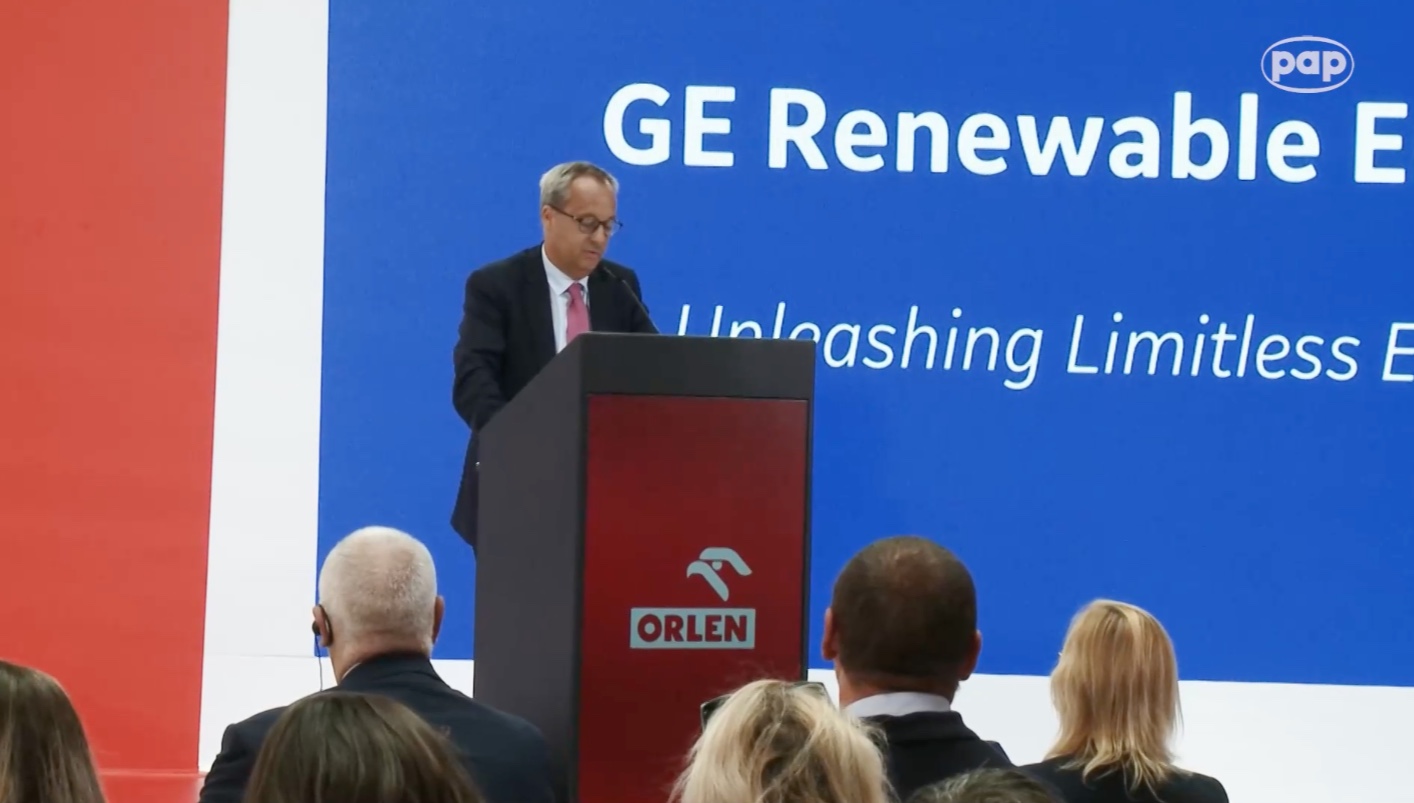The international corporation GE (headquartered in Boston, USA) has become Orlen’s strategic technology partner in the development of offshore wind energy. PKN Orlen’s CEO Daniel Obajtek stressed that GE is not only “an innovative company with gigantic experience in the power industry in many markets around the world”, but also owns manufacturing facilities and creates supply chains in Poland.
Daniel Obajtek said that the signed letter of intent and cooperation with GE Renewable Energy will support Olen in the preparation of competitive bids in the process of applying for further concessions for wind energy production in the Baltic Sea.
“Orlen, however, is looking not only at the Polish coast, but more broadly – also at the possibility of acquiring concessions in other Baltic states,” the company’s chief declared.
He also stressed that it is important for Orlen’s investments in wind energy to be connected with building a supply and value chain in the Polish economy.
“Investments in wind farms on the Polish Baltic coast alone will amount to several dozen billion zlotys. This may become an engine room for the Polish economy,” Obajtek said.
He stressed that he would like the target percentage of Orlen’s investments in the Baltic Sea in the future to be made up of 60% of the so-called local content (i.e., such percentage of the value of services and products would be provided by Polish companies).
Jerome Pecresse, president of GE Renewable Energy and vice-president of GE, while signing the memorandum of cooperation stressed that the planned energy production volume in the Baltic Sea could place Poland among the five largest offshore wind energy markets in the world in 2050.
He declared that GE will contribute to providing Poland with cheap, reliable, clean and renewable wind energy through its rotor blade manufacturing facility in Goleniów, its power turbine manufacturing plant in Elbląg, and its research and development centre employing 1,200 engineers.
“In the agreement with Orlen, we committed to jointly develop supply chain capabilities in Poland,” Jerome Pecresse said.
The ceremonial signing of the letter of intent was attended by the Minister of State Assets, Deputy Prime Minister Jacek Sasin. According to him, the process of energy transformation in Poland, which is a derivative of the EU climate policy, is not only a huge investment challenge but also a great opportunity to acquire new technologies and create new jobs in innovative areas of the economy.
The Deputy Prime Minister stressed that the development of wind energy is a chance for attractive jobs in the innovative sector in the future for people currently employed in the mining and coal power industries.
“This process of transformation in the energy sector is to lead to Poland becoming a stronger and safer country in terms of energy, and Poles will gain access to cheap and healthy forms of energy production for people and the environment,” said Jacek Sasin.
“Orlen in the coming months will become a multi-energy company that will be able to provide energy security to Poland and be very active in Central Europe,” he declared.
Cindy Biggs, Commercial Attaché at the U.S. Embassy in Warsaw, added that energy security, which is tantamount to national security, is an important aspect of bilateral relations between Poland and the United States.
According to her, GE’s technological involvement in the wind energy sector in Poland is also a fulfilment of the Polish and American governments’ commitments to support the local economy and business. Cindy Biggs also spoke of American companies’ willingness to participate in the development of nuclear energy in Poland and in the process of converting coal-fired power plants to gas-fired ones (such as Orlen’s cooperation with GE in Ostrołęka).
Daniel Obajtek reminded that PKN Orlen intends to spend PLN 140 billion on investments within 10 years. “We are the leader of the energy transformation in Poland,” he declared, pointing out that PKN Orlen was the first company in Central Europe to announce that it would achieve zero emissions by 2050 and that within 10 years it planned to reduce emissions from petrochemicals by 20 per cent and from power generation by 33 per cent.
Currently, Orlen holds one concession to build a wind farm in the Baltic Sea with a capacity of 1200 MW, but it will apply for more concessions to achieve economies of scale.
The development of cooperation with GE also depends on how many concessions PKN Orlen obtains.
“With enough concessions, our negotiating power towards GE as our technology partner will increase,” Obajtek said.
He expressed hope that the issue of granting further concessions by the Polish government will be settled still in 2021.


















